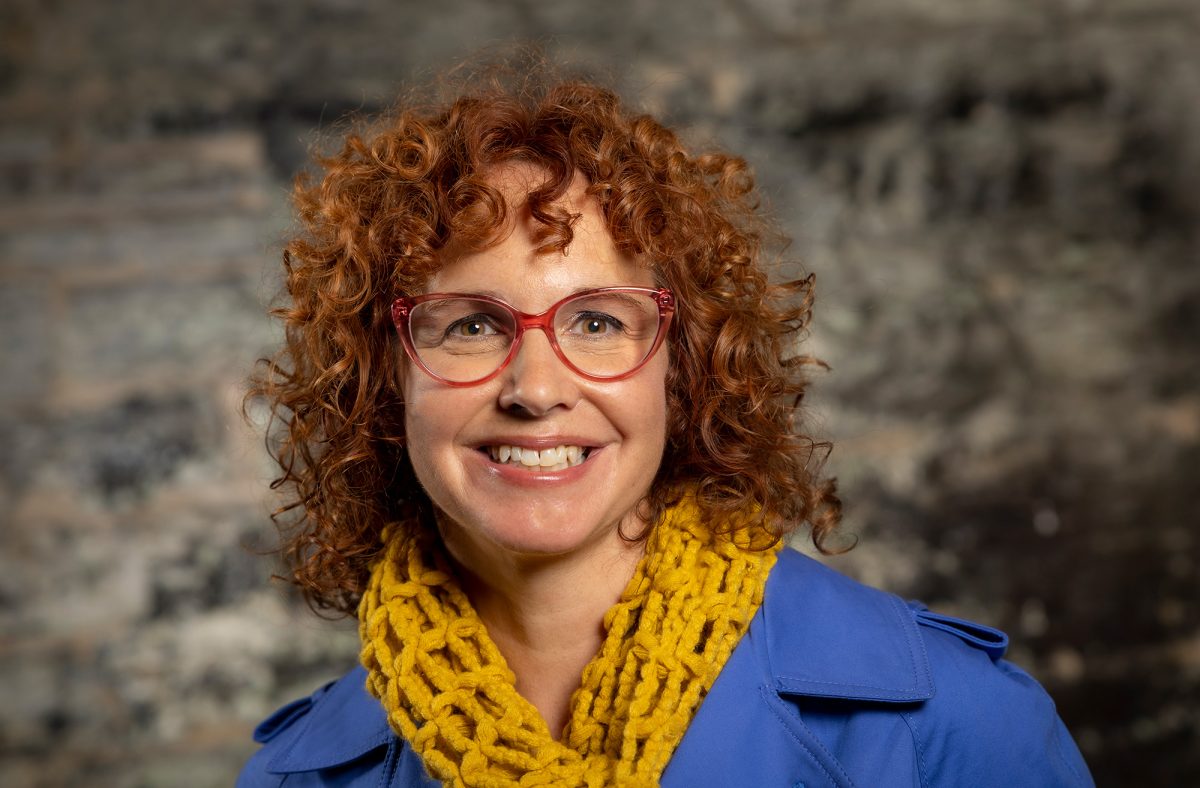
Scott Trimble/Syracuse.com
Eisenstadt has been working as a journalist since she received her degree in print journalism from Ithaca College.
The Syracuse Press Club announced April 9 that Marnie Eisenstadt ’97 won the 2025 Bill Carey Award for Journalist of the Year. Eisenstadt has been working as a journalist since she received her bachelor’s degree in journalism with a concentration in print media from IC. She will be honored at the SPC Awards on May 3.
She received the award for her narrative storytelling and investigative reporting as a public affairs reporter for Syracuse.com and The Post-Standard on heavy topics, including addiction, youth violence and juvenile justice.
News Editor Kaeleigh Banda spoke with Eisenstadt about her progression throughout her career and what her award-winning reporting means to her.
This interview has been edited for length and clarity.
Kaeleigh Banda: How did you get started as a public affairs reporter at Syracuse.com and The Post-Standard?
Marnie Eisenstadt: I have worked at newspapers since I graduated in ’97. … I always wanted to and always aimed to do stories that examined how we were serving the people in our communities and what we were missing. If you look through my stories over the past 20 years, you’ll see that they’re often about people who are overlooked. And I think they just have the most to tell us about how we’re doing as a community, as a society, and they’re also the people who are least listened to.
KB: The stories you cover are often about sensitive topics. How do your own personal emotions come into play when working with such heavy subject matter?
ME: I’m careful, but to some extent, I realized that we can just be people and that is my most effective interviewing tool: to simply have a conversation with someone. … I think it certainly feels more comfortable if you know something about me, if I’m going to ask you everything about you. I’m also always very forthright and not afraid to ask a hard question, but I try very hard to come from a nonjudgmental place. Often I’m talking to people who are drug addicts, who have committed crimes, who have made the wrong choices and people who are judged very harshly by society. So the last thing they need to feel like is that I’m going to judge them, too. … When people talk to you about stuff that’s awful, you’re human. It’s OK to say, “I’m so sorry that happened.”
KB: How have you seen your work as a journalist impacting your sources’ lives and your community?
ME: There’s a story I wrote this past year about a woman whose kids’ FAFSA application just fell into some weird bureaucratic crack. … The FAFSA was a nightmare this past year and so there were lots of stories about that, but not lots of stories that really got to the true impact on people. … I wrote a piece about a woman who has twins; one was the valedictorian and the other was third in the class. She’s a single mom, and they still have not gotten their financial aid package, and it is two weeks before school is supposed to start, so she was going to have to take money out of her retirement account for her kids to go to college when they should be going for free. … I did the story as fast as I could because she was going to have to pay the bill. And within days, Chuck Schumer’s office got involved. … So, they went to college. It was free for both of them. … It felt really good to be able to help those people, and just to know that we are still able to have that kind of impact.
KB: What does receiving the 2025 Bill Carey Award for Journalist of the Year mean to you?
ME: I would be remiss if I didn’t say that I knew Bill, and Bill was a great guy. He was generous to other reporters, and he was the kind of guy sources respected but did not screw around with. … I think it’s important to remember that even though this business is a competitive business, we all can lift each other up without giving away our good stories. It’s wonderful to be honored by the community of journalists that you work with and [are] among every day. There are a lot of people I work with who are more than worthy of this as well.
KB: How did your time at Ithaca College prepare you for your career?
ME: I think the program there was excellent, but I also think from the minute I stepped on that campus — and really my decision to go to [IC] over the other schools I was looking at — was The Ithacan. It was such a professionally run and independent operation. … It also allowed me, even as a student, to start realizing the dream that I had of working in this business, changing things and bringing things to light.
KB: What advice do you have for future journalists?
ME: I think curiosity is really undervalued. I think what fuels a good career and a good story is just really being curious. … I’ve seen so many people lose an opportunity to do a great story because they wanted to look smart instead of being curious. I am always happy to be the dumbest person in a room. … And I think with regards to the industry, being flexible and reading as much good writing as you can. Not on Instagram posts, but the whole story and a good story. … Writing is the most transferable skill in the world.